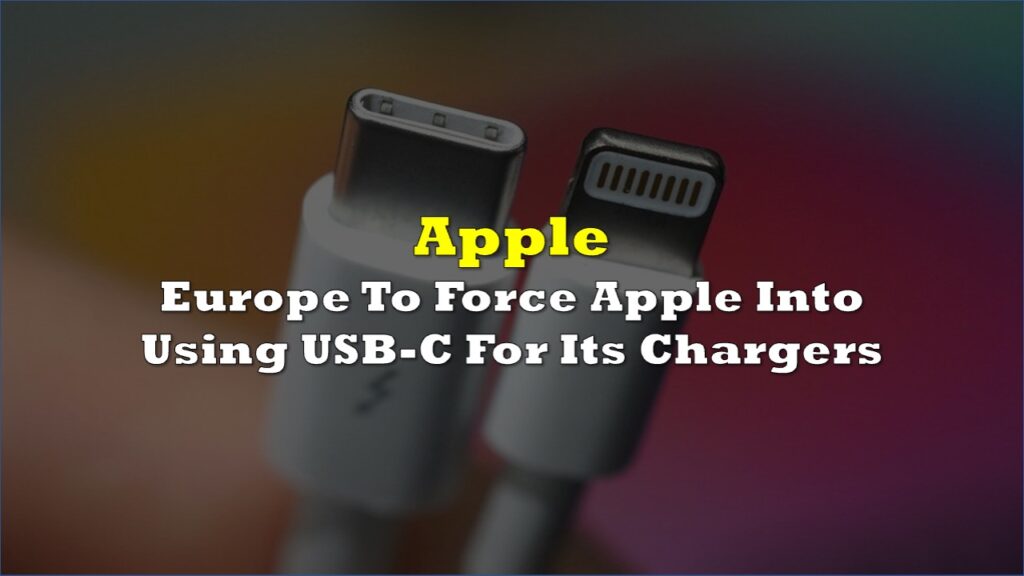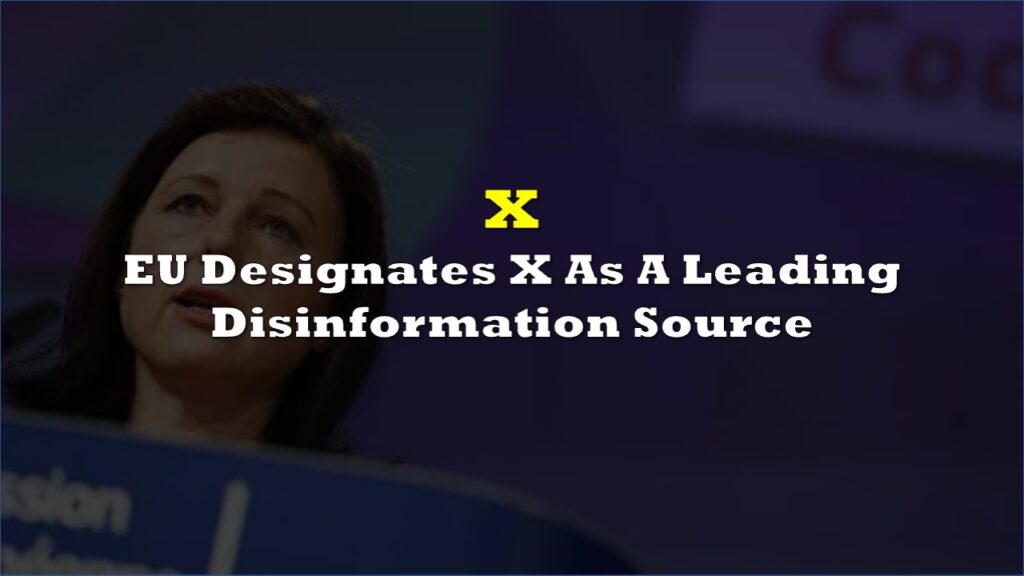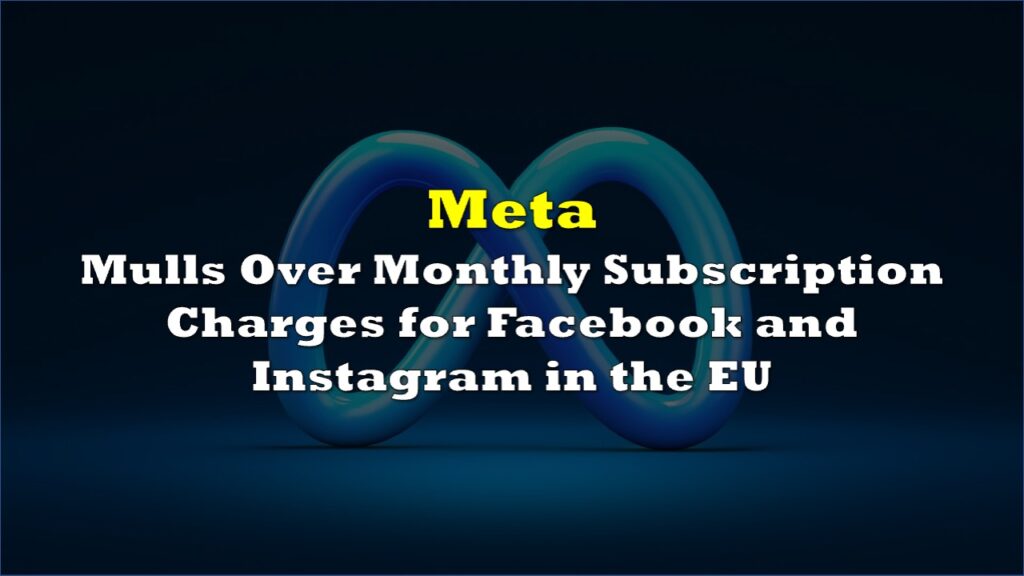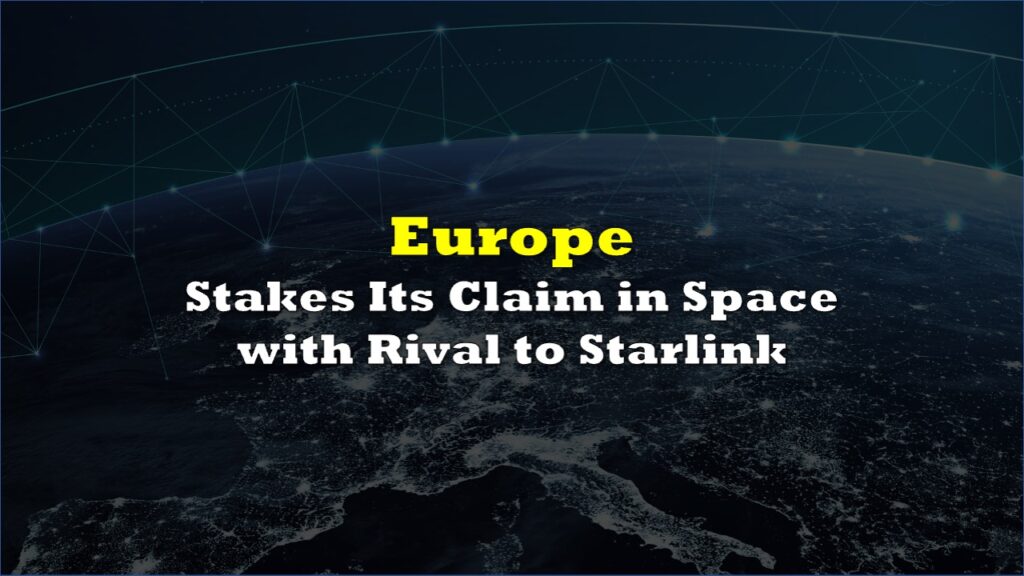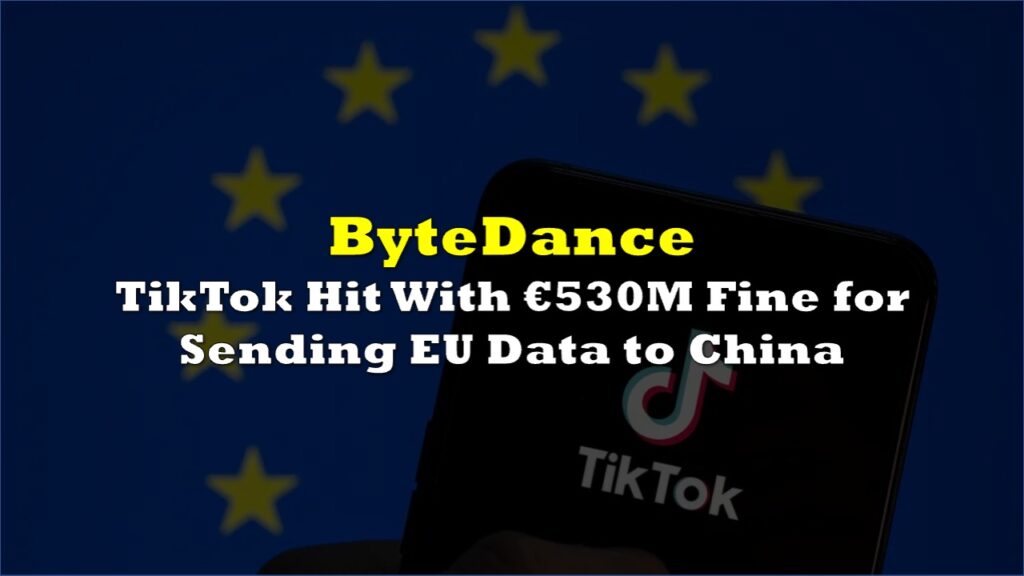The European Council and European Parliament have reached a provisional political agreement on the proposed Digital Markets Act, aimed at making the “digital sector fairer and more competitive.” The landmark deal is set to regulate so-called “gatekeepers” like Facebook, Amazon, Apple, and Google operations within the region.
A deal was reached on the Digital Markets Act, ushering in a new era of tech regulation worldwide.
— European Parliament (@Europarl_EN) March 25, 2022
The new rules will limit the market power of big online platforms by blacklisting certain practices ↓
“The European Union has had to impose record fines over the past 10 years for certain harmful business practices by very large digital players,” said French Secretary of State for the Digital Sector Cédric O. “The DMA will directly ban these practices and create a fairer and more competitive economic space for new players and European businesses.”
The act clarifies the definition of a gatekeeper in the digital market sector: having an annual turnover of at least €7.5 billion in the union for three years or a market valuation of at least €75 billion. The gatekeeper also has at least 45 million monthly end-users and at least 10,000 business users established in the EU.
Once the act is enforced, gatekeepers are required to abide by the regulations put forth by the union, including giving users the right to unsubscribe with a similar process as the platform’s subscription push and not forcing users to require default browsers. They will also be prohibited to rank their own products higher than others on their platforms and pre-install certain software applications.
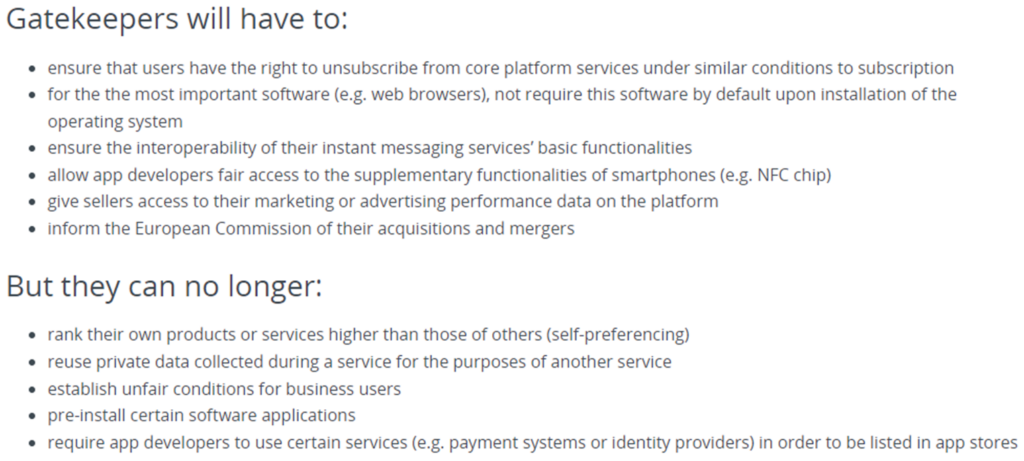
The act might also force companies with instant messaging services to ensure interoperability with smaller platforms, as well as require app stores to make their exclusive apps available to alternative app markets.
This could also spell the end for exclusive in-platform payment portals as gatekeepers must allow options for payment methods.
The EU’s Digital Markets Act “might mean gatekeepers… perhaps [Google's] web browser may no longer be the default option when someone sets up their device,” @BrianSozzi says. “These [tech] companies are trying to wade through the muck Apple created with their privacy changes.” pic.twitter.com/1MH5LI1wsP
— Yahoo Finance (@YahooFinance) March 25, 2022
Should the gatekeepers violate the act once it’s in force, they are fined 10% of its total worldwide turnover and 20% for a repeated offense.
Apple and Google separately responded to the agreement, saying the move might be a challenge to innovation.
“While we support many of the DMA’s ambitions around consumer choice and interoperability, we remain concerned that some of the rules could reduce innovation and the choice available to Europeans,” the company said.
On the other hand, Apple said that parts of the DMA “will create unnecessary privacy and security vulnerabilities for [its] users while others will prohibit [them] from charging for intellectual property.”
The provisional agreement reached today is still subject to approval by the Council and the European Parliament once the final text has been written. The resolution is then expected to be implemented within six months thereafter.
Information for this briefing was found via Seeking Alpha and ABC News. The author has no securities or affiliations related to this organization. Not a recommendation to buy or sell. Always do additional research and consult a professional before purchasing a security. The author holds no licenses.





